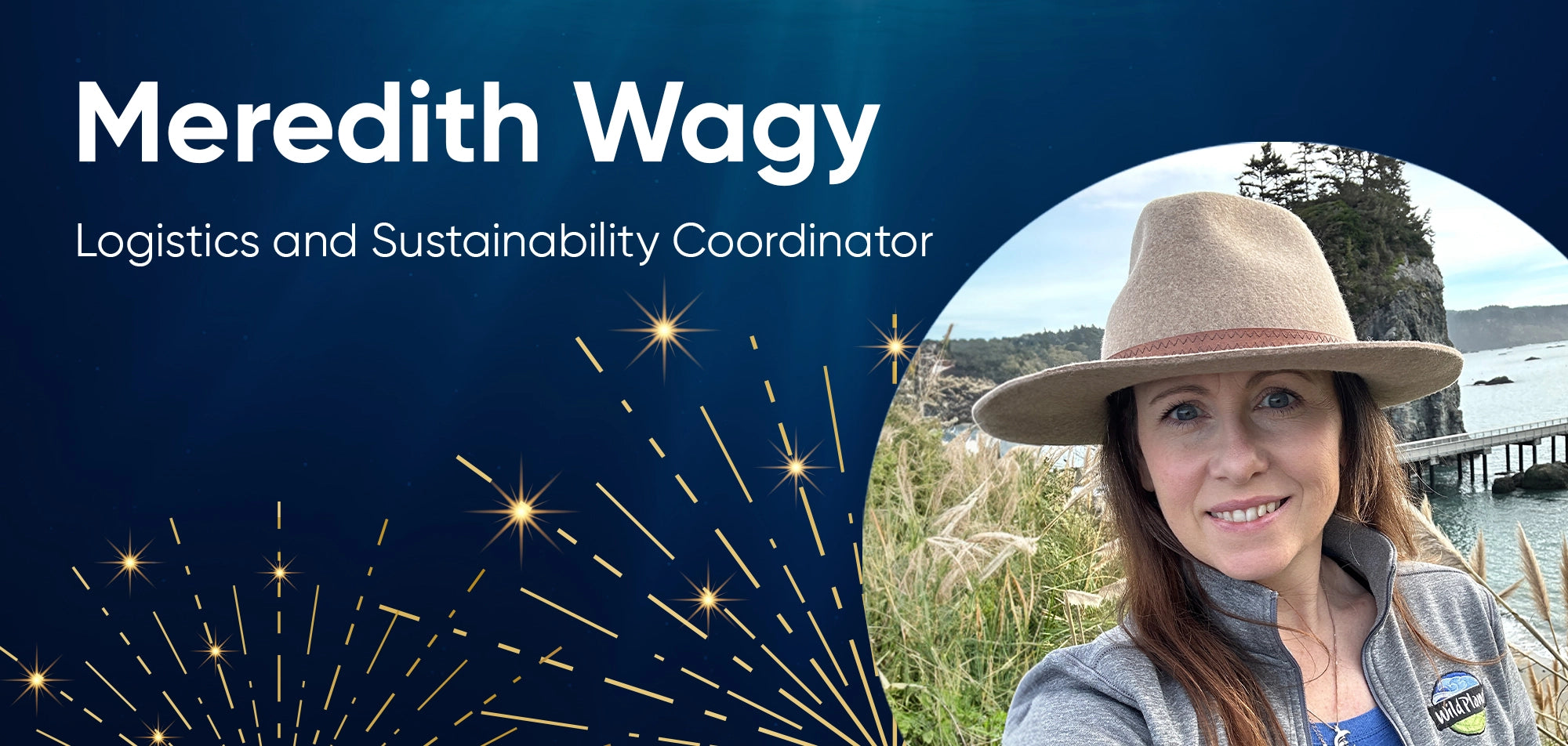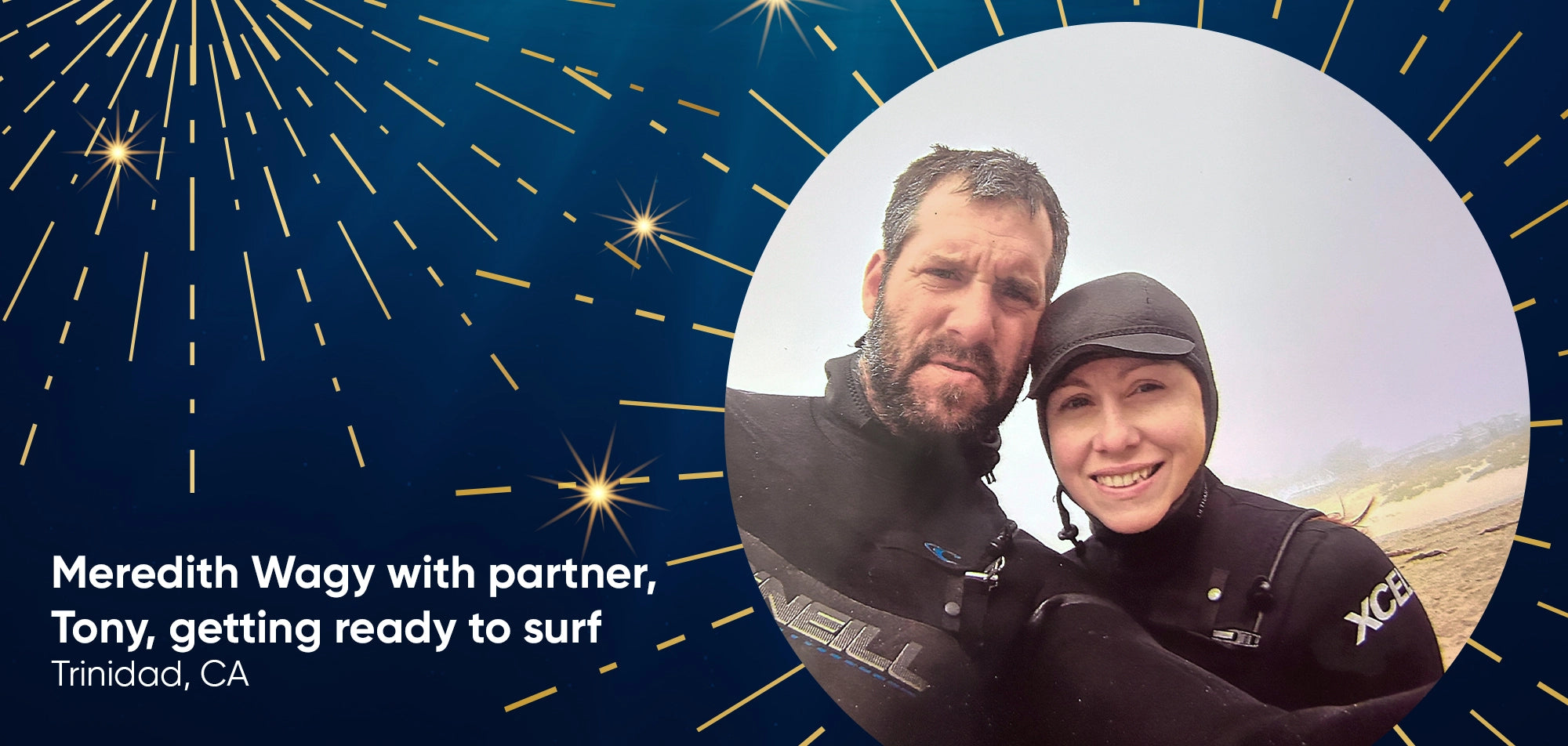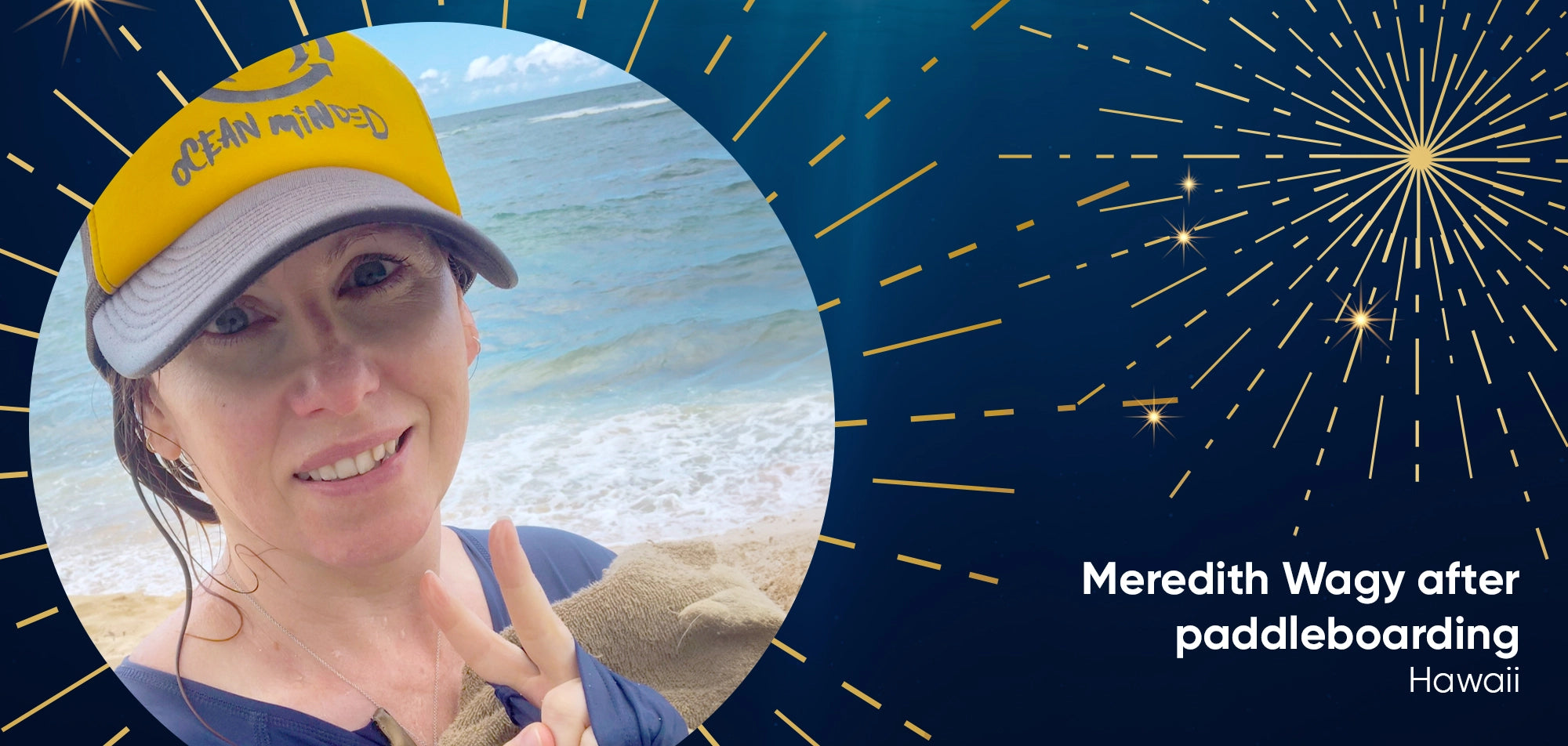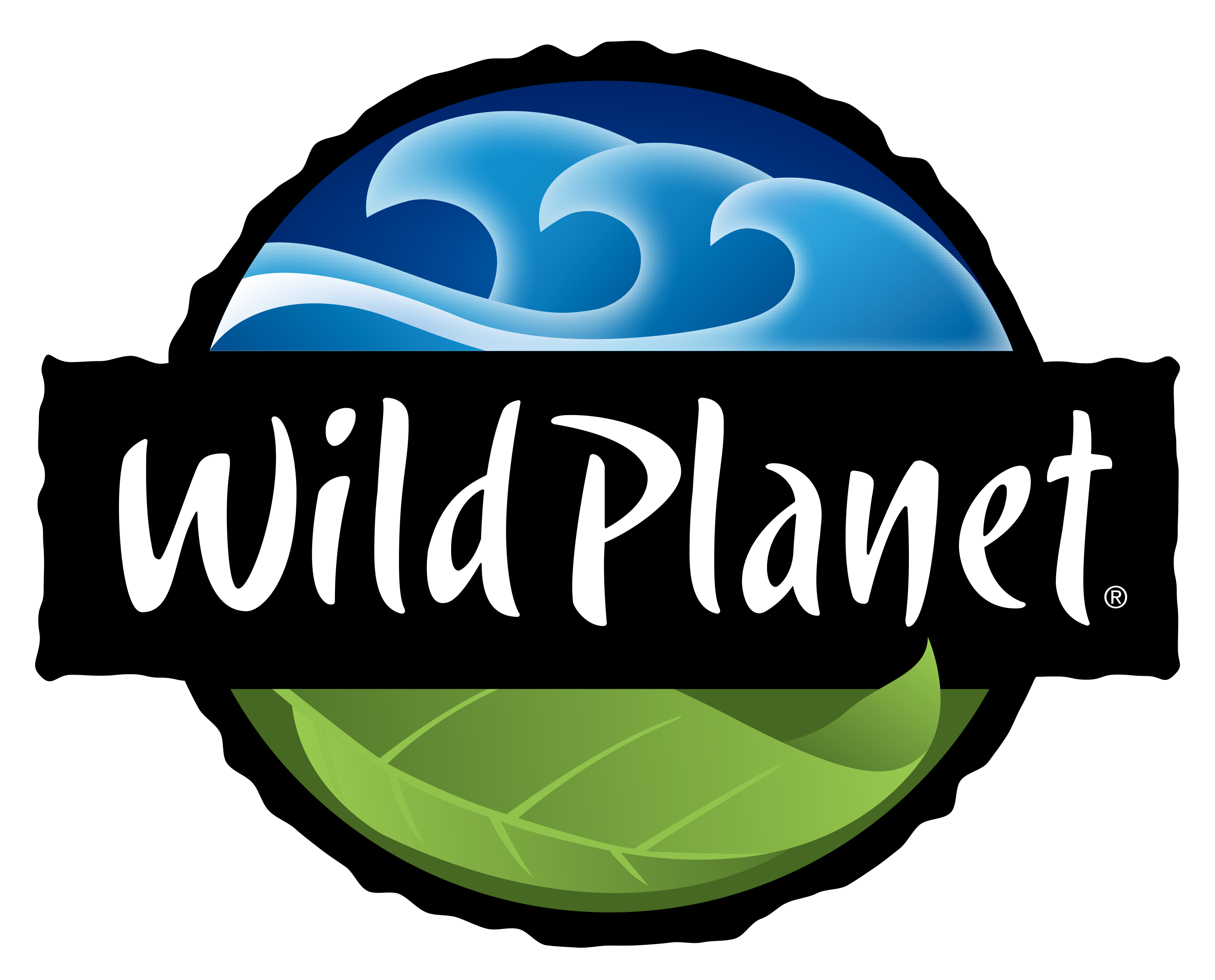With a deep passion for ocean conservation and sustainability, Meredith Wagy has been an integral part of the Wild Planet team since 2011. As the Logistics and Sustainability Coordinator, Meredith's dedication to responsible fishing practices and reducing environmental impact aligns seamlessly with Wild Planet's mission. Join us as we dive into her inspiring story and learn how she contributes to the company's unwavering commitment to protecting our oceans.

When I moved back to Humboldt County, California in 2011, I was searching for a company that shared my values and passion for sustainability. The devastating impact of the Deepwater Horizon oil spill had left a permanent mark on me, and I knew I wanted to be part of an organization that was making a positive difference. Serendipitously, my childhood friend, Carrie Stubbs, who happened to be working at Wild Planet, connected with me on Facebook, and I sent her my resume. On March 1st, 2011, I started my journey at Wild Planet as an accounts payable clerk.
Over the past 13 years, my role has evolved from handling fish tickets for tuna to focusing on logistics and sustainability. I've had the opportunity to coordinate the shipping of raw tuna to Vietnam for processing, managing up to 72 containers in a single season. It's been an incredible learning experience, and I'm constantly inspired by the dedication of our local fishermen who catch tuna using pole and line methods.
Outside of work, I'm a proud mother of two daughters and three bonus boys. My oldest, Hailey, and her husband live in South Carolina and have a rambunctious one-year-old with another on the way. Abbey, my youngest, is a high school overachiever who never ceases to amaze me with her artistic ability. Calvin lives in Bend, Oregon and enjoys snowboarding in the winter. Erik lives in Sacramento, California and studies computer science. Xavier lives in Florida and is also an amazing artist. When I'm not spending time with my family, you can find me surfing, paddleboarding or hiking with my partner Tony, or horseback riding. I'm also passionate about ocean conservation and reducing plastic use, having been involved with the Surfrider Foundation's local chapter.
Working at Wild Planet has been an incredibly rewarding experience. The company's flexibility and work-life balance allow me to pursue my passions while contributing to a mission I truly believe in. As we continue to expand our sustainability efforts, I feel challenged and fulfilled knowing that I'm part of a team that genuinely cares about the biodiversity of our environment.
Sincerely,
Meredith Wagy
Logistics and Sustainability Coordinator, Wild Planet Foods


To gain more insight into Meredith's experiences and perspectives, we asked her about her favorite Wild Planet products, the company's pivotal moments, and her thoughts on sustainability. Here's what she had to share:
Q: What is your favorite Wild Planet product and why?
A: I love the Wild Mackerel Fillets in EVOO and the Ready-to-Eat Wild Tuna, Bean & Corn Salad. The mackerel is a great alternative when I'm not in the mood for tuna, and it's an easy, quick protein source.
Q: Do you have a favorite recipe using Wild Planet products?
A: I enjoy the mackerel on a nice slice of toast with the oil from the can, a little salt and pepper, and some green or red onions.
Q: Why do you enjoy working at Wild Planet?
A: I love the flexibility and the work-life balance. We all work well together and can bounce ideas off each other because of the open-door policy that exists. Adding in our new sustainability work feels challenging but satisfying, knowing that I work for a company that cares about the biodiversity of our environment.
Q: Can you share any pivotal turning points in Wild Planet's history?
A: In the last 13 years since I have been with Wild Planet, I've witnessed the company's growth and evolution. When I first started, I was heavily involved in coordinating with our facilities, processing fish tickets, balancing payables, and cutting fishermen's checks. It was a fantastic opportunity to get to know the local fishermen and hear their stories. A pivotal moment for me was the first year I started coordinating the export of raw tuna for processing. We sent an impressive 72 containers of tuna from Seattle, WA, which required a significant amount of paperwork and documentation. It was inspiring to see so many local fishermen catching tuna using sustainable pole and line methods, aligning perfectly with Wild Planet's commitment to responsible fishing practices.
Q: What excites you most about Wild Planet's future?
A: I am most excited about our company's sustainability goals for 2024 because every employee plays a huge role in making those goals come to fruition. Sharing those goals and accomplishments with our stakeholders and consumers is how Wild Planet has always set ourselves apart from other seafood brands, and I am proud to be a part of it.
Q: What does sustainability mean to you and why is it important?
A: To me, sustainability means leaving things a little bit better for future generations. We should take pride in where we live and instill in our children why protecting the biodiversity of the planet is important. Small actions from many people can make a huge difference. When I moved back to Humboldt County, I joined the local chapter of the Surfrider Foundation, a grassroots organization dedicated to protecting our oceans and beaches. Through my involvement with Surfrider, I learned about the importance of reducing single-use plastics and participated in initiatives that contributed to the ban on plastic bags in California.
Outside of work, my family and I put these values into practice by picking up trash on the beach and around our neighborhood. We limit our single-use plastics as much as possible, compost, buy bamboo toilet paper, and use refill products. We send things to TerraCycle to be recycled and buy second-hand from online stores like ThredUp. We are not perfect, but we are always trying to do better.
Q: What do you wish consumers knew about fishing, ocean health or environmental sustainability?
A: A healthy ocean means an abundance of biodiversity. Avoiding harmful fishing methods which use FADs (fish aggregating devices), longline, and bottom trawling is important to the ocean's ecosystem. Not only do responsible fishing practices reduce bycatch (unwanted species) and protect ocean habitats – but also, it helps families that depend on the fishing industry for their livelihood, from indigenous communities to local fishermen. With a 9% recycle rate of plastic and an estimated 14 million tons of plastic ending up in the oceans, it's important that the ocean is protected, and reducing our single-use plastic is an important part of that.
Q: Any special Wild Planet memories you'd like to share?
A: There are a lot of stories that I have collected in the 13 years at Wild Planet, but the company parties and yearly ping pong tournaments were a fun way to bring us all together. We always had the best food, lots of fun, and a bit of exercise chasing down employees who were delinquent on submitting reimbursements (haha).
Meredith Wagy’s journey at Wild Planet is a testament to her passion, dedication, and shared commitment to ocean conservation. Her evolving role within the company has allowed her to contribute to the mission of promoting sustainable fishing practices and reducing environmental impact. Through her personal experiences and insights, Meredith reminds us that every individual has the power to make a difference in protecting our planet's biodiversity. As Wild Planet continues to set ambitious sustainability goals, employees like Meredith serve as an inspiration, demonstrating that small actions can lead to significant change when we work together towards a common purpose.







